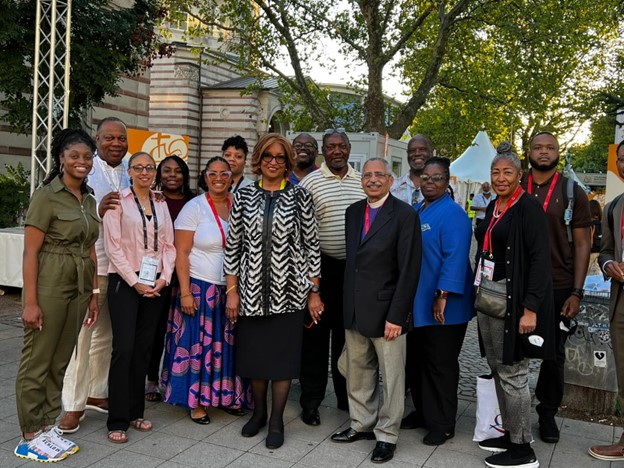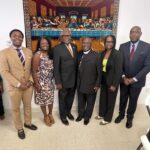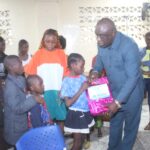By Rev. Jazmine Brooks, News Editor
From August 31 to September 9, Christians from all across the globe gathered to celebrate the 11th Assembly of the World Council of Churches in Karlsruhe, Germany. Formed in 1948, the World Council of Churches (WCC) is the world’s largest ecumenical body. It represents over 500 million Christians in 350 denominations across various Christian communions, including Anglicans, Baptists, Independents, Methodists, Reformed, Orthodox, Pentecostals, and several other traditions. The Assembly is convened every eight years, with the last Assembly taking place in Busan, Korea, in 2013. The General Secretary (chief executive) of the WCC is the Rev. Prof. Dr. Ioan Sauca. The WCC Assembly moderator is Dr. Agnes Abuom of the Anglican Church of Kenya.
With the theme “Christ’s love moves the world to reconciliation and unity,” thousands of delegates, observers, and participants engaged in ten days of prayer, dialogue, and reflection. Additionally, the assembly delegates revisited WCC policy, crafted statements and positions, and elected members to the Central Committee—the body governing the WCC in its interim assembly. A typical day began with morning prayer, followed by Bible study and then a plenary session around a specific theme (e.g., climate justice, global peace, and unity). After lunch, business sessions were conducted to determine the body’s goals and causes for the next nine years. On several days there were “ecumenical conversations”—structured small group discussions oriented around one of twenty-one (21) themes ranging from “Pan-African solidarity” to “sexuality” to “evangelism.” Days would close with an evening prayer service drawn from one of the various Christian communions, incorporating a diverse litany of languages and cultures.
The African Methodist Episcopal Church has maintained a strong presence in the World Council of Churches. In 1991 at the 7th Assembly in Canberra, Bishop Vinton R. Anderson was elected to serve as one of the eight Presidents of the WCC Assembly. Bishop Vashti Murphy McKenzie currently serves as president of the North American Council, a subset of the WCC. The Rev. Garland F. Pierce serves as chair of the Ecumenical Trust, a fund that supports the WCC, the National Council of Churches of Christ in the United States of America (NCCCUSA), and Church World Service. The official AME delegation for this year included: Bishop Jeffrey Leath (delegation leader), the Rev. Garland Pierce, Mr. Herbert Mngadie, the Rev. Dr. Jennifer Leath, and the Rev. Jazmine Brooks (youth delegate).




African Methodists attended the Assembly and had several visible and key roles. Bishop Leath and the Rev. Jazmine Brooks served in the ecumenical worship services. The Rev. Dr. Leath was elected to serve on the central committee and as a key leader in the policy committee and evangelism ecumenical group. Reflecting on the Assembly, delegation leader Bishop Leath shared: “The spectrum of opinions regarding world events is challenging within our fellowship. Adding international perspectives to our views has resulted in a more mature and urgent outlook. We often are so absorbed by the indignities of racism that we do not hear the cries of brothers and sisters who cry from abuse because of their faith. The testimonies of healing and rising from resentment illuminate a path of reconciliation we must traverse with greater intensity. The Assembly is helping us see the way others are traveling, even if we have yet to walk a mile in their shoes.”
The position statements of the WCC 11th Assembly are available here: https://assembly.oikoumene.org/files





